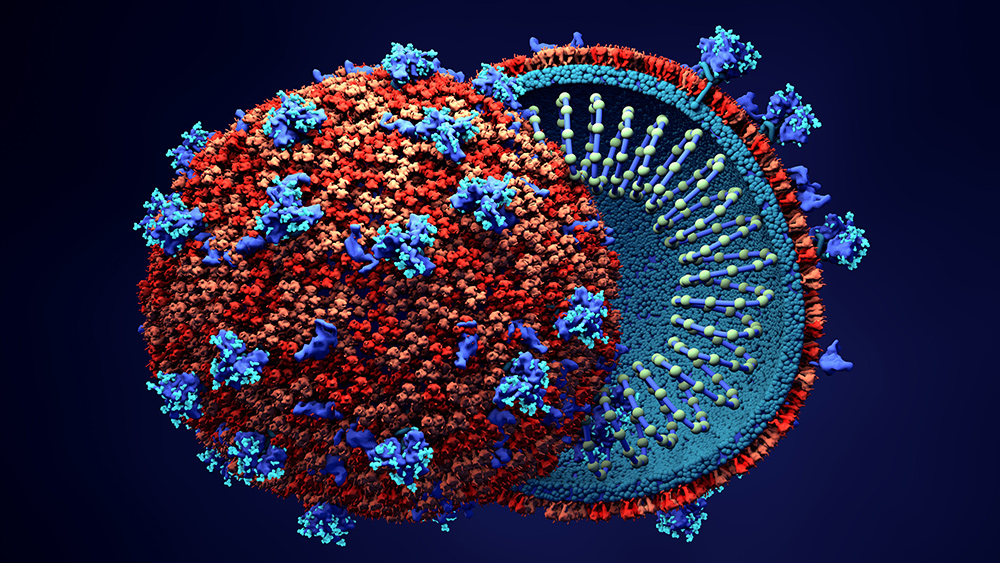The food industry has put obese people at higher risk of critical illness from the coronavirus
07/23/2020 / By Divina Ramirez

Obese people are at an increased risk of critical illness from the Wuhan coronavirus (COVID-19) and the global food industry is partly to blame.
In a recent editorial published in the British Medical Journal (BMJ), a group of English researchers reported that being obese corresponds to an astounding 97 percent greater risk of critical illness due to COVID-19.
The group notes that the pandemic has limited people’s access to fresh foods. In turn, this resulted in the greater consumption of processed foods high in salt, sugar and saturated fat that contribute to the rising numbers of obese adults around the globe.
Obese people are more at risk of infection
In their editorial, the group cited a recent study published in preprint server MedRxiv that featured a cohort of 428,225 participants from the UK Biobank. The article looked at the potential risk factors for COVID-19 and compared them to those for pneumonia and influenza.
The team behind the research, comprised of scientists from the University of Glasglow in Scotland, found that 340 participants had been hospitalized due to confirmed COVID-19 diagnoses. Of these patients, 44 percent were overweight and another 34 percent were obese.
The team then identified several modifiable risk factors among the group of confirmed COVID-19 patients. These included a higher body mass index, smoking and the use of blood pressure medication.
In particular, overweight patients had a 44 percent greater risk of developing severe complications due to the disease. Meanwhile, COVID-19 patients who were obese had a 97 percent chance of being critically ill, more than double the risk of those who were overweight.
Being modifiable risk factors, however, these findings suggest that adopting lifestyle changes that seek to address these risk factors might help reduce the risk of COVID-19 or reduce the severity of its symptoms in patients.
Obesity impacts the immune system’s response to infection
The group behind the BMJ editorial noted that multiple mechanisms could be behind the apparent link between obesity and COVID-19 risk.
For instance, scientists found that the transmembrane enzyme called angiotensin-converting enzyme-2 (ACE-2) was more abundant in obese COVID-19 patients. SARS-CoV-2 – the pathogen behind COVID-19 – uses ACE-2 to enter cells.
Another factor could be obesity’s effect on immune health. Past studies found that excess abdominal fat promotes inflammation throughout the body by stimulating the production of pro-inflammatory cells.
Low-grade chronic inflammation, a common symptom among obese individuals, can weaken immune cells over time, thus impairing immune functions. In effect, obesity can render a person more susceptible to infection and disease.
Furthermore, being obese makes it difficult for the lungs to expand and contract as normal. As such, obese COVID-19 patients may experience more severe symptoms related to the disease, such as shortness of breath and chest pain.
Food industry share the blame for the consequences of the pandemic
Obesity has already been a common health problem among adults before the pandemic hit. In 2016, the World Health Organization (WHO) reported that there were more than 1.9 billion adults worldwide who were either overweight or obese.
According to the authors of the BMJ editorial, part of the reason this is such a prevalent problem around the globe has to do with the promotion and production of cheap, convenient and processed foods teeming with sugar, salt and saturated fat. These ingredients are among the most common culprits behind cardiometabolic problems.
These foods, however, were already abundant before the pandemic. Therefore, it appears that the COVID-19 pandemic only exposed an equally alarming obesity pandemic around the globe and amplified its consequences.
For instance, the limited access to fresh foods due to stockpiling and lockdown measures led to the greater consumption of non-perishable foods like canned goods. Lockdowns have also seen a drastic increase in the time spent at home and, inversely, a decrease in time spent moving about. (Related: Coronavirus lockdowns worsen childhood obesity, studies say.)
It bears stressing that a lack of exercise or physical activity compounds the problem of poor diet and nutrition amid the pandemic. Together, both make an individual susceptible to weight gain.
Furthermore, the BMJ editorial authors maintain that food companies have leveraged the pandemic in their marketing efforts; launching campaigns and promotions that encourage the consumption of more processed foods.
The group stated that the COVID-19 pandemic has underscored the urgent need to tackle the production and promotion of processed foods that have exacerbated the prevalence of obesity. Also, the group adds that governments should enforce measures for the swift reformulation of these foods.
Learn more about the other health risks from the coronavirus over at Pandemic.news.
Sources include:
Tagged Under: coronavirus, covid-19, disease, food industry, immune system, immunity, infections, nutrition, obesity, outbreak, pandemic, poor diet
RECENT NEWS & ARTICLES
ImmuneSystem.News is a fact-based public education website published by Immune System News Features, LLC.
All content copyright © 2018 by Immune System News Features, LLC.
Contact Us with Tips or Corrections
All trademarks, registered trademarks and servicemarks mentioned on this site are the property of their respective owners.




















